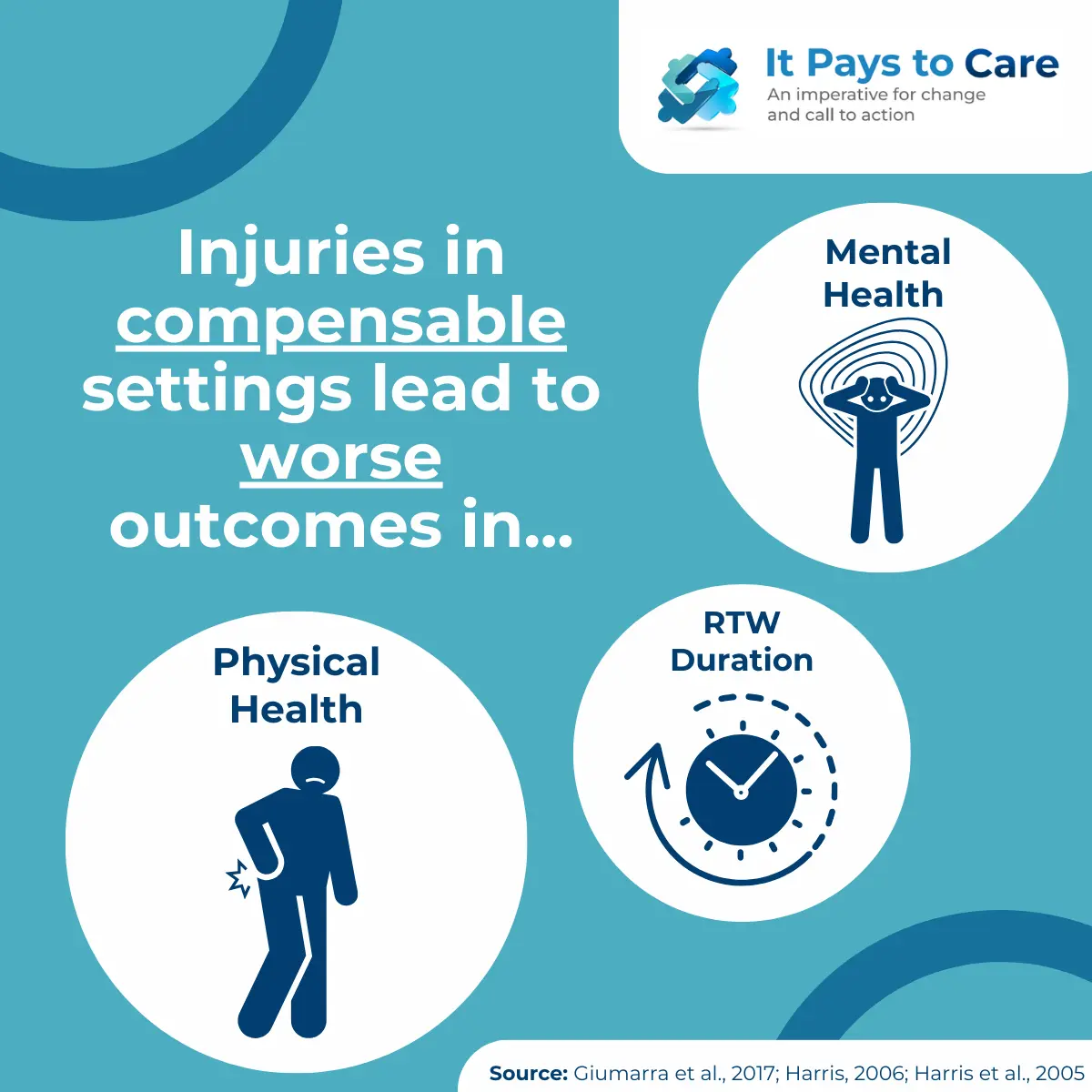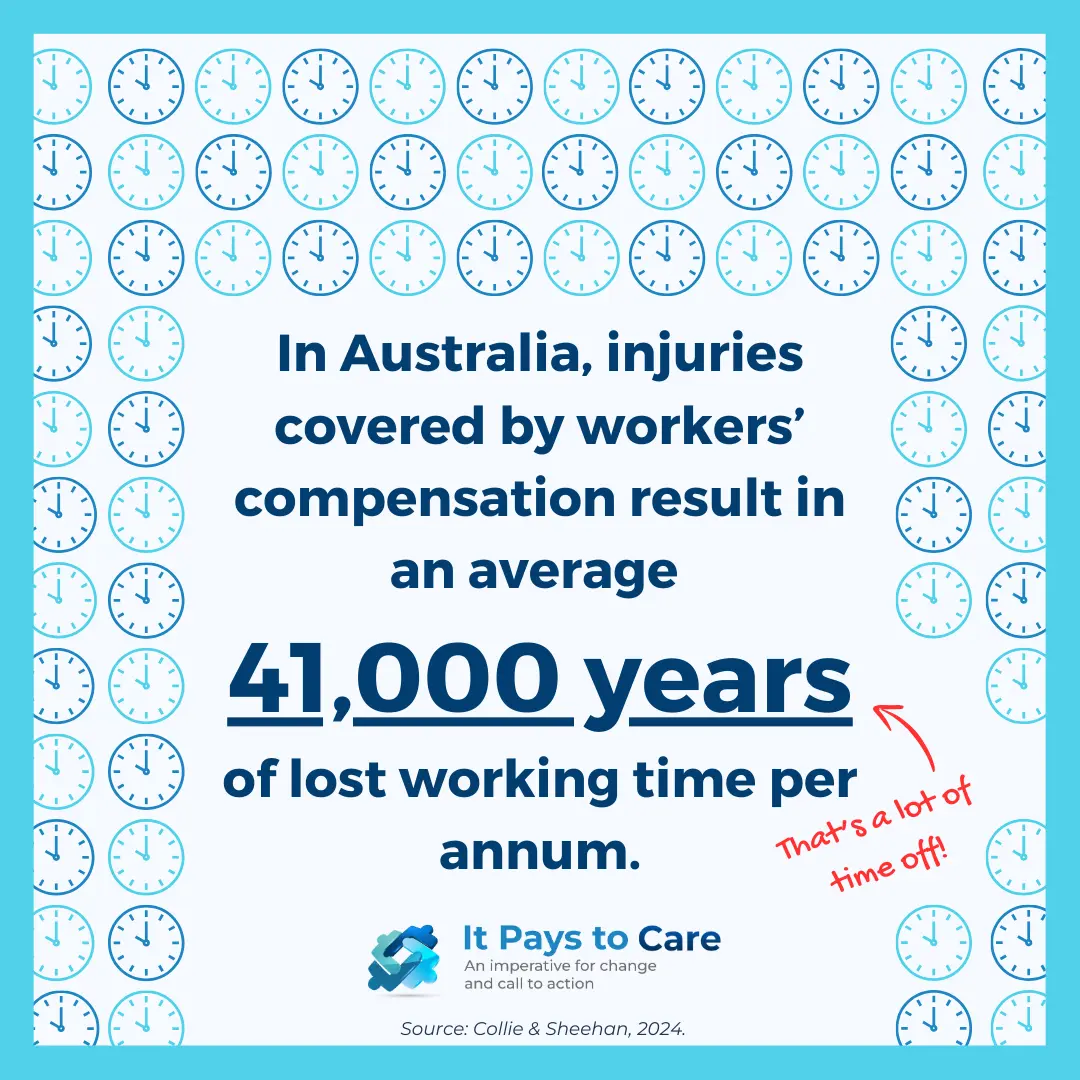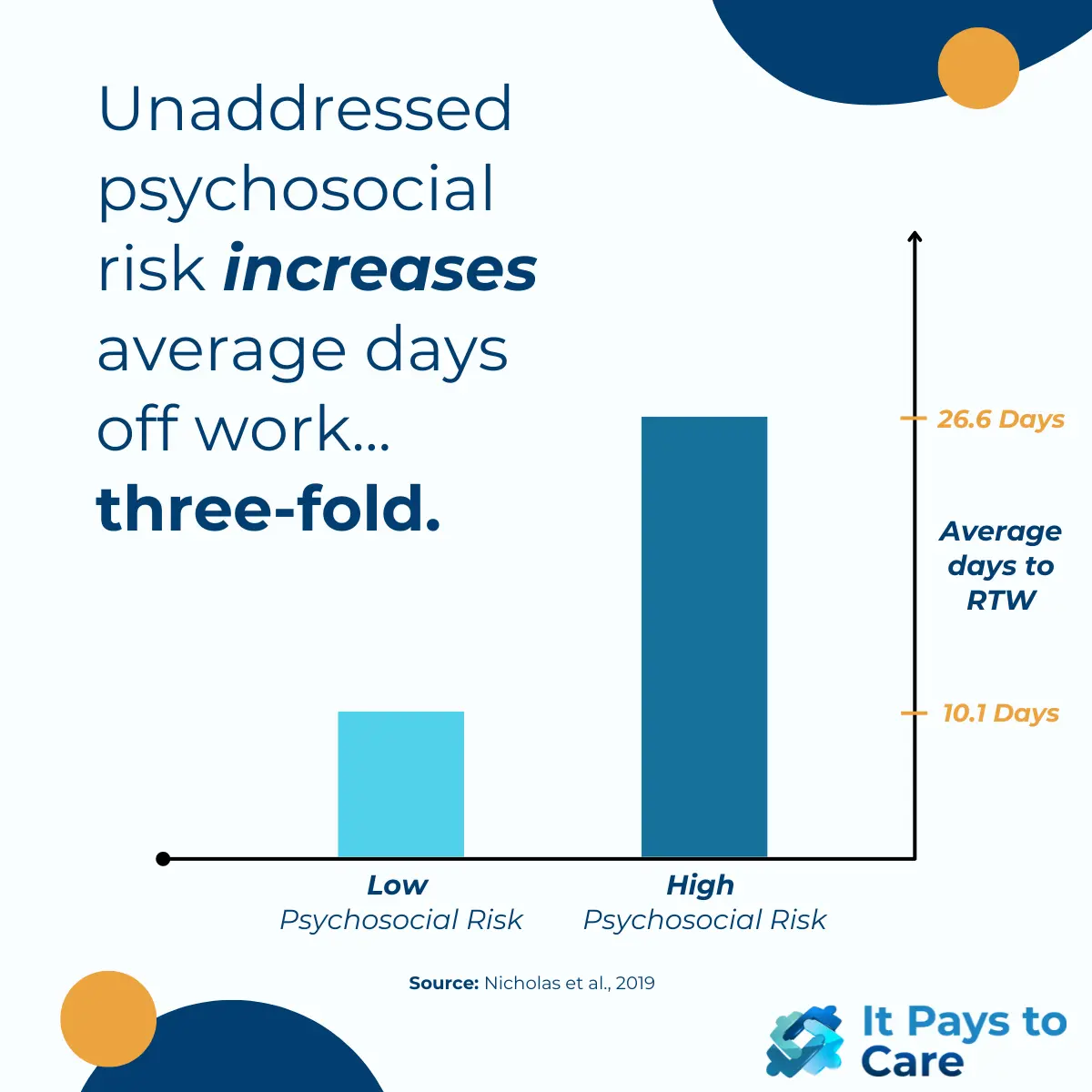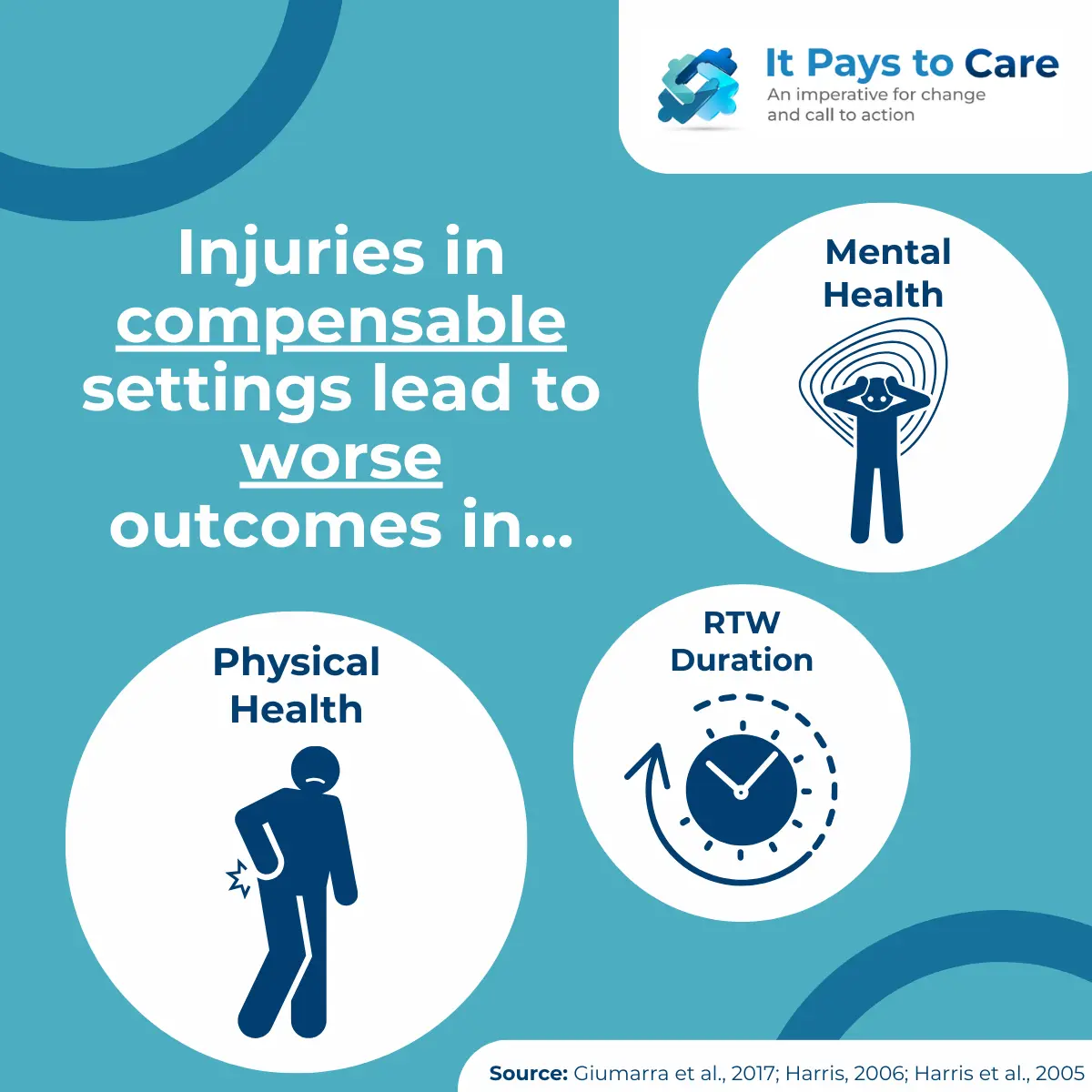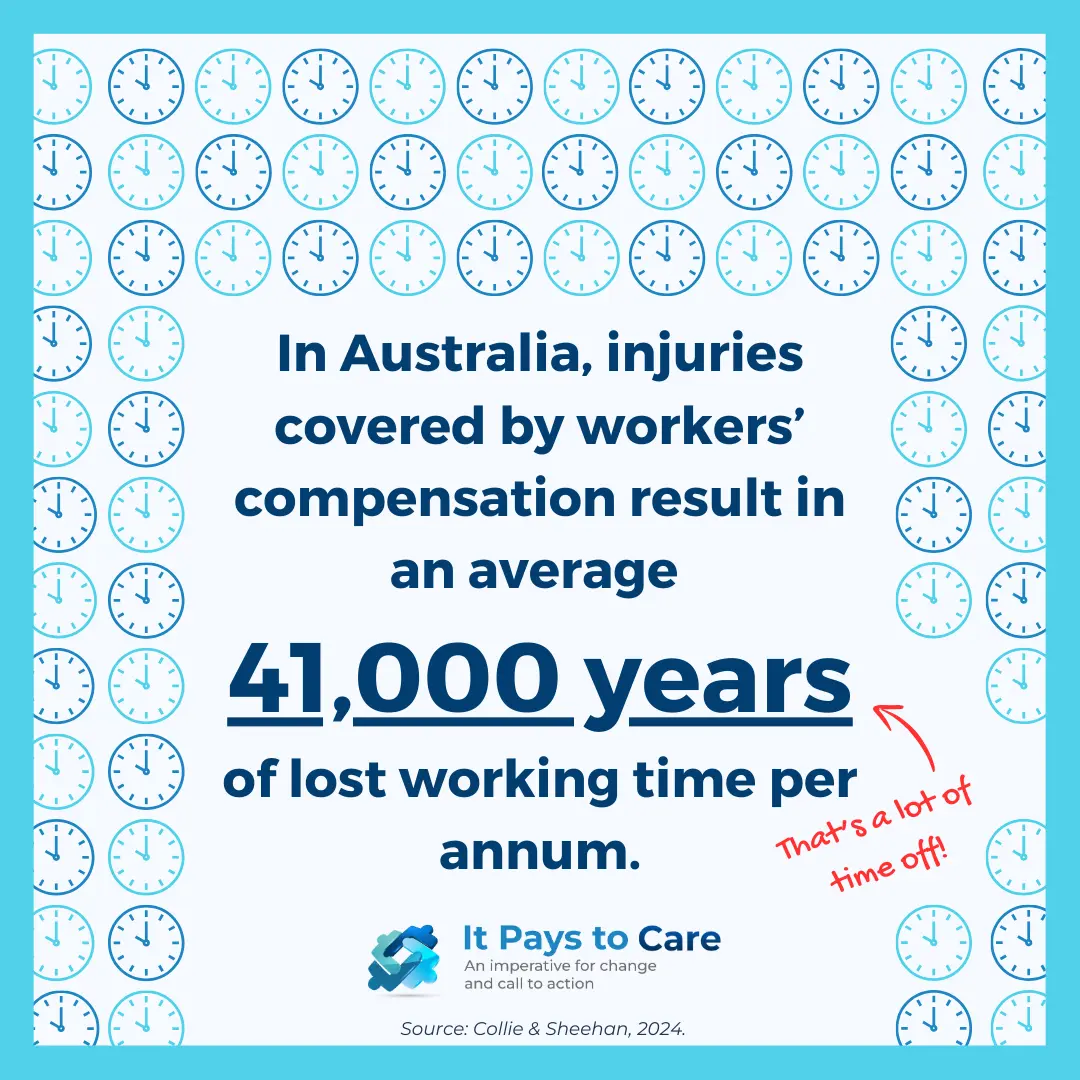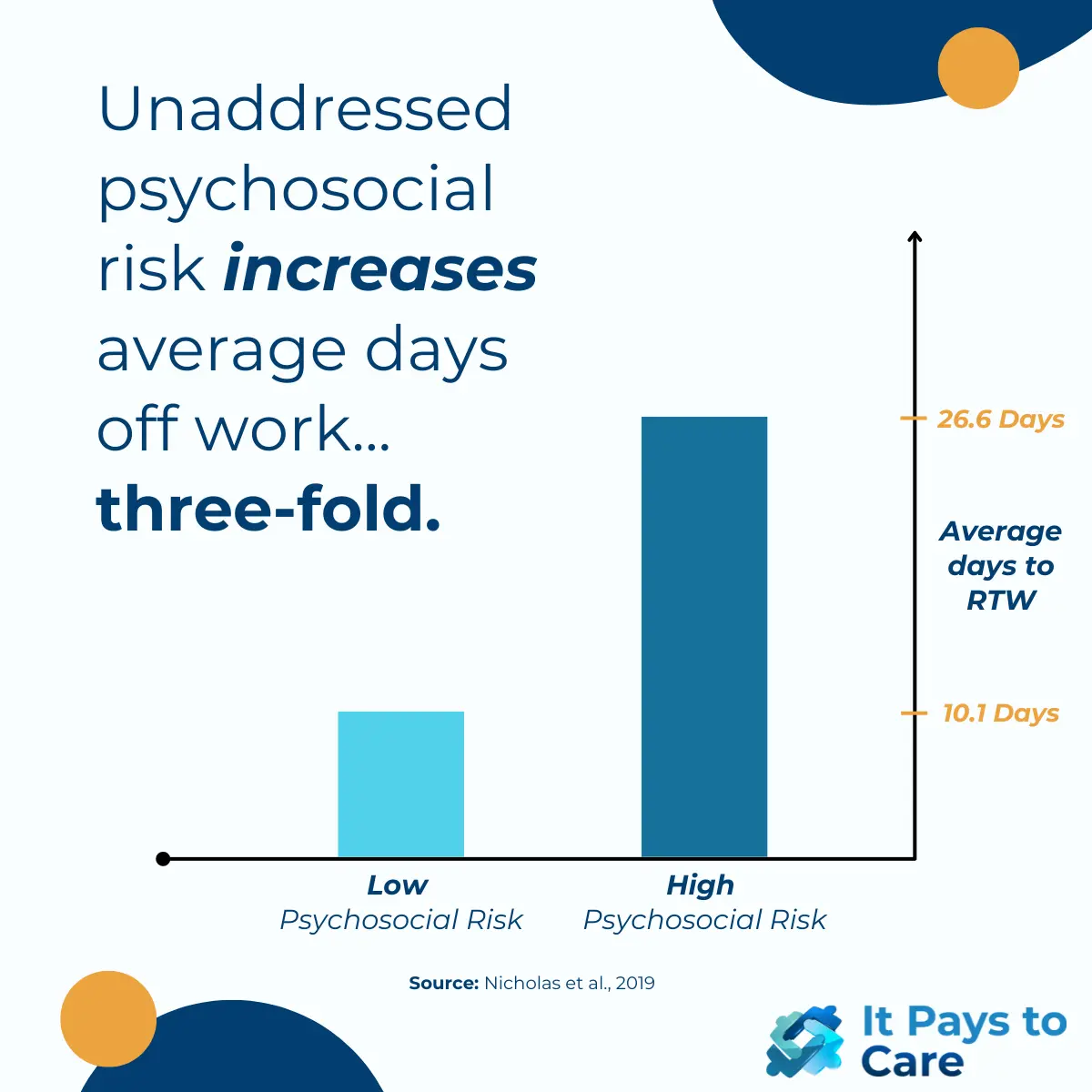An Imperative for Change.
Work injury management approaches and systems should reliably support recovery and return-to-work outcomes for injured workers, but many current approaches do not.
When an injury or medical condition occurs in a compensable setting, the chance of a poor health outcome is significantly higher than for same condition in a non-compensable setting. Lengthy work absence and long-term disability rates are higher for those injured at work.
Long-term work absence leads to poorer physical and mental health outcomes, and there are high human and financial costs associated with prolonged work disability.
There is a need to reduce work disability and to ensure work injury systems are fit-for purpose.
The It Pays to Care policy paper argues there is strong evidence that modifiable psychosocial factors are responsible for many of these poor outcomes, creating an imperative to change current approaches.
